Careers in Botany Profiles
|
|
|
Jennifer Ackerfield
Head Curator and Associate Director
Denver Botanic Gardens
Ph.D.Botany, Colorado State University
M.S. Botany, Colorado State University
B.S Botany, Colorado State University
@cobotanist
https://jenniferackerfield.weebly.com/
Jennifer Ackerfield is the Head Curator of Natural History Collections and Associate Director of Biodiversity Research at Denver Botanic Gardens. There, she coordinates the growth and improvement of the natural history collections, supports biodiversity research efforts, and manages herbarium staff and volunteers working with the collections. Throughout her career, Jennifer has traveled extensively throughout Colorado documenting its rich floristic diversity. This extensive knowledge led her to write the Flora of Colorado, with the goal of helping anyone identify the plants of Colorado with ease. Jennifer also leads a research program focused on documentation of biodiversity through targeted floristic inventories, systematics and taxonomy of western North American groups such as native thistles (Cirsium), and unraveling the origins of plant diversity in the Southern Rocky Mountains through biogeographic studies. Jennifer regularly collaborates with organizations and agencies across the state, leads field trips and workshops, and initiates community participatory science campaigns. She also loves teaching and sharing her passion for botany to students of all ages.
Updated 9-20-2023
|
| |
|
|
|
Javier A. Ceja-Navarro
Research Scientist
Biological Systems & Engineering, LBNL
Ph.D. Biotechnology, Cinvestav-Mexico
B.S. Chemical engineering, ITC-Mexico
@deuterioh
www.hostmicrobiome.info
Dr. Javier Ceja-Navarro is a research scientist at the Lawrence Berkeley National Laboratory. He studies host-microbe associations and multitrophic interactions in ecosystems such as the gut of insects and the rhizosphere of plants. Javier’s goal is to develop and apply innovations in molecular biology, microbiology, analytical chemistry, and bioinformatics to understand the mechanisms that control microbial trophic interactions in complex ecosystems.
|
| |
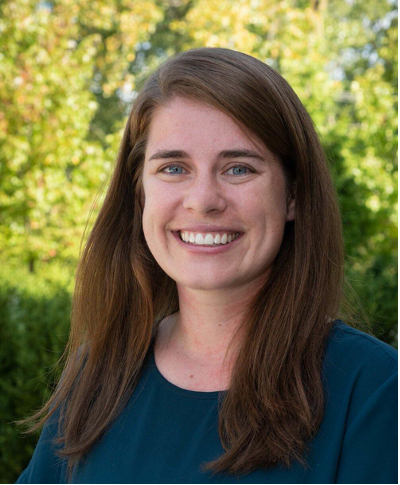 |
|
Jessamine Finch
Research Botanist
Native Plant Trust
Ph.D. Plant Biology and Conservation,
Northwestern University and Chicago Botanic Garden
B.A. Biological Sciences, Smith College
Jessamine Finch is a Research Botanist at Native Plant Trust and manages the Seed Bank of the New England Plant Conservation Program (NEPCoP) at Garden in the Woods (Framingham, MA). In addition to supporting NEPCoP and managing ~2,000 seed collections of >400 rare taxa, she designs and executes applied plant conservation research projects and teaches courses on botany, genetics, and ecology.
|
| |
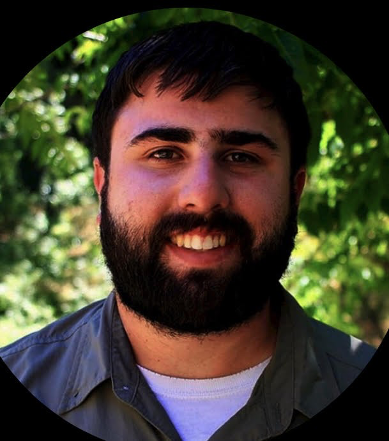 |
|
Andrew Ford
Consulting Botanist and Certified Arborist
Sequoia Ecological Consulting, Inc.
B.S. Wildlife Conservation and Management,
Humboldt State University
https://www.linkedin.com/in/andrew-ford-2380923b/ https://sequoiaeco.com/about/the-team/andrew-ford/
Andrew Ford is a California Certified Consulting Botanist and International Society of Arboriculture Certified Arborist for Sequoia Ecological Consulting, Inc in Walnut Creek, CA. Mr. Ford is responsible for preparing botanical reports, conducting special status plant species surveys, mapping occurrences of rare plants, consulting and conducting research for policy regarding plants, including the National Environmental Policy Act (NEPA) and California Environmental Quality Act (CEQA) and guiding restoration efforts for plants in various habitat types of California. Along with these responsibilities, Mr. Ford specializes in endangered plant habitat restoration, wetland delineations and soils science.
|
| |
|
|
|
Naomi Fraga
Director of Conservation
California Botanic Garden
Ph.D., Botany, Claremont Graduate University
M.S. Botany, Claremont Graduate University
B.S. Biology and Botany, California Polytechnic University, Pomona
@naomibot
monkeyflower.org
Dr. Naomi Fraga is the Director of Conservation Programs at the California Botanic Garden (CalBG) and Research Assistant Professor at Claremont Graduate University. At CalBG, Fraga provides programmatic leadership and management for the plant conservation programs. She oversees a broad spectrum of plant conservation work including rare plant research, botanical surveys, seed conservation, restoration, conservation genetics research and invasive plant management. Her research focuses on the systematics of the species formerly treated in the genus Mimulus (commonly known as monkeyflowers, Phymaceae), of which she has discovered and described several new species. Dr. Fraga also conducts research in floristics of California, conservation biology, and plant rarity and endemism..
|
| |
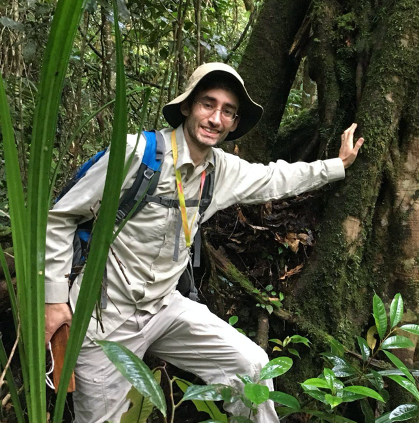 |
|
Elliot Gardner
Postdoctoral Associate
International Center for Tropical Botany,
Florida International University and
National Tropical Botanical Garden
Ph.D. Plant Biology and Conservation, Northwestern University
and Chicago Botanic Garden
J.D. Benjamin N. Cardozo School of Law
B.A. English, Columbia University
@elliotmgardner
https://sites.google.com/view/elliotgardner/home
Dr. Elliot Gardner is a tropical plant systematist. He uses phylogenomics and traditional taxonomy to investigate the evolution of tropical plants. His primary taxonomic expertise is in the Moraceae, but he has been involved in projects involving a number of angiosperm families. He has mostly worked in Southeast Asia, but has recently started working on Pacific flora as well.
|
| |
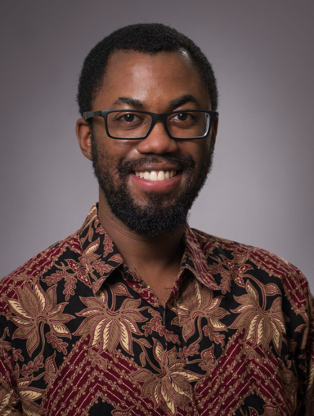 |
|
Kadeem Gilbert
USDA-NIFA Postdoctoral Fellow
The Pennsylvania State University
Ph.D. Organismic and Evolutionary Biology, Harvard University
B.S. Natural Resources, Cornell University
@GilbertKadeem
www.kadeemgilbert.com
Dr. Kadeem Gilbert is currently a USDA-NIFA Postdoctoral Fellow at Penn State and will be moving into an Assistant Professor position at Michigan State starting August 2021. He studies carnivorous plants (particularly Nepenthes) and their interactions with insects and microbes. He also studies symbioses between plants and other organisms more broadly, focusing on the ability of plants to physiologically modify the properties of the microenvironment to which their symbionts are exposed.
|
| |
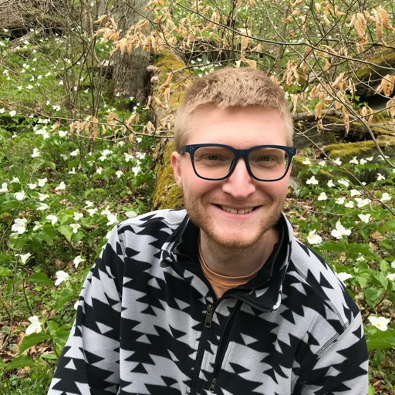 |
|
Mason Heberling
Assistant Curator of Botany
Carnegie Museum of Natural History
Postdoc, Carnegie Museum of Natural History
Postdoc, University of Tennessee Knoxville
Ph.D. Biology, Syracuse University
B.S. Biology, Penn State University
@jmheberling
masonheberling.com
Dr. Mason Heberling is an herbarium curator and plant ecologist studying the functional ecology of understory plant species in temperate forests, especially in the context of climate change and introduced species invasions. As a museum curator, he strives to facilitate and broaden the use of natural history collections by students, researchers, and the public. As a museum-based researcher, he uses herbarium specimens, field experiments, and observational data to understand basic plant function and complex ecological interactions.
|
| |
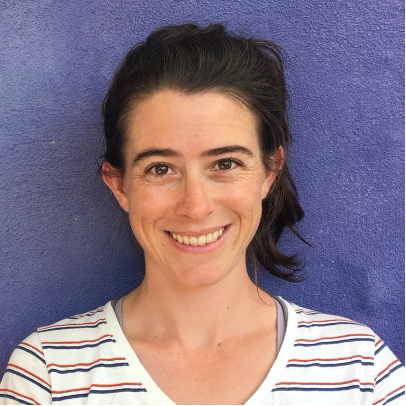 |
|
Erica Krimmel
Digitization Resource Coordinator
Integrated Digitized Biocollections (iDigBio)
M.S. Library and Information Science, San Jose State University
B.A. Environmental Studies, University of California Santa Cruz
@ekrimmel
https://www.linkedin.com/in/erica-krimmel-1b70a683/
Erica Krimmel is a biodiversity information scientist who works with herbaria and other natural history collections to maximize the accessibility and usefulness of their data. Her background in information science adds broadly applicable technical skills and theory to her passion for life sciences, in particular botany. Prior to coming to iDigBio, Erica worked as a collections manager at U.C. Berkeley's Sagehen Creek Field Station (SCFS), the Chicago Academy of Sciences (CACS), and the Natural History Museum of Los Angeles (LACM).
|
| |
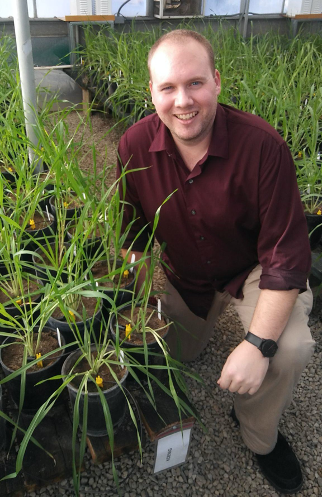 |
|
Jacob Landis
Postdoctoral Researcher
Cornell University
Ph.D. Botany, University of Florida
M.A. Ecology and Evolutionary Biology, University of Kansas
B.S. Ecology and Evolutionary Biology, University of Kansas
@JLandisBotany
https://jacoblandis.com/
Dr. Jacob Landis is a postdoctoral researcher at Cornell University working with Drs. Chelsea Specht, Susan Strickler, and Jeff Doyle. He has worked on a variety of genomics based projects involving crops such as soybean, rice, and barley; as well as wildflowers in the genus Calochortus and Costus. Another main area of research interests include diversification analyses from smaller clades of genera and families to larger studies involving all monocots and angiosperm wide.
|
| |
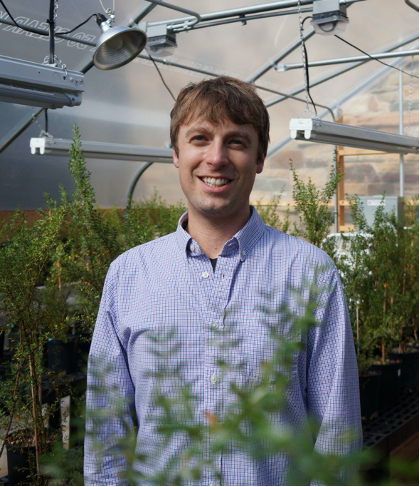 |
|
Robert Laport
Assistant Professor & Herbarium Curator Rhodes College
Ph.D. Ecology and Evolutionary Biology, University of Rochester
M.S. Ecology and Evolutionary Biology, University of Rochester
B.S. Biology, Oregon State University
@robertlaport
http://www.robertlaport.com
Dr. Robert Laport is an assistant professor and herbarium curator at Rhodes College, a small liberal arts college in Memphis, TN. He teaches courses in evolution and plant diversity, and conducts research with undergraduates often just discovering the world of plant ecology and evolutionary biology. His teaching experiences include teaching field ecology at the Rochester Institute of Technology, which also served hearing impaired students from the National Technical Institute for the Deaf, and teaching evolution at the University of Colorado-Denver, an institution serving a large population of first generation, minority, and non-traditional students. Research in the lab ranges from investigating the ecological aspects of whole genome duplication and the origins of biodiversity to characterizing eastern deciduous forest community structure in urban/suburban environments and conservation of American chestnut.
|
| |
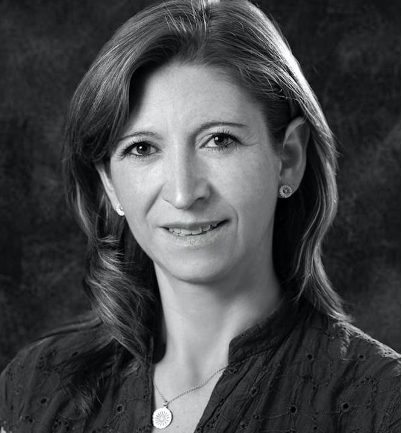 |
|
Carla Maldonado
Herbarium Director, Professor, and Researcher
Universidad Mayor de San Andrés in La Paz-Bolivia
Ph.D. Genomics and Evolution, University of Copenhagen
M.S. Biology, Aarhus University
B.S. Biology, Universidad Mayor de San Andrés
https://www.researchgate.net/profile/Carla-Maldonado-4/research
Dr. Carla Maldonado is a botany scientist with practical and theoretical experience ranging from field work in the tropics to molecular-based laboratory and analytical techniques. Her research has focused on the taxonomy and phylogeny of plants, but she is increasingly interested in biogeography and evolution and how this knowledge can be used for conservation.
|
| |
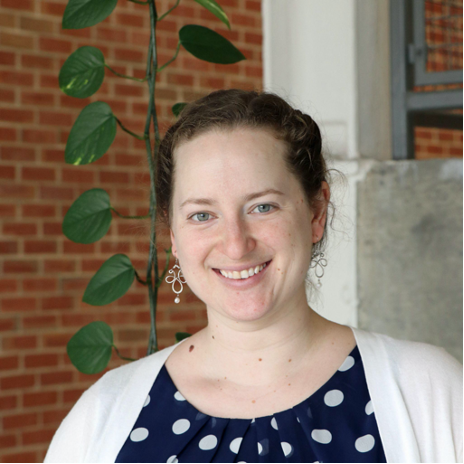 |
|
Elizabeth McCarthy
Assistant Professor, PUI
SUNY Cortland
Ph.D. Biology, Queen Mary, University of London
B.A. Biology, Smith College
@EMcCNicotiana
Dr. Elizabeth McCarthy (she/her/hers) is an assistant professor at The State University of New York College (SUNY) at Cortland in central New York. SUNY Cortland is a predominantly undergraduate institution, and Elizabeth has a nearly equal balance of teaching and research. Her research interests focus on how polyploidy and hybridization affect the evolution of flower color, shape, and size.
|
| |
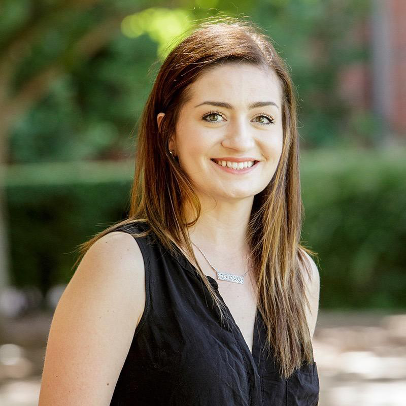 |
|
Angela McDonnell
Postdoctoral Researcher
Chicago Botanic Garden
Ph.D. Plant Sciences, Oklahoma State University
B.S. Biology, Edgewood College
@angelajmcd
angelajmcd.com
Dr. Angela McDonnell is a plant evolutionary biologist who studies American milkweed vines, Australian nightshades, population genomics of rare plants, and Hawaiian carnations. She is currently a postdoctoral fellow at the Chicago Botanic Garden, where she is focused on Schiedea genome assembly, transcriptomics, and phylogeny to better understand the evolution of breeding system and other traits in an adaptive radiation.
|
| |
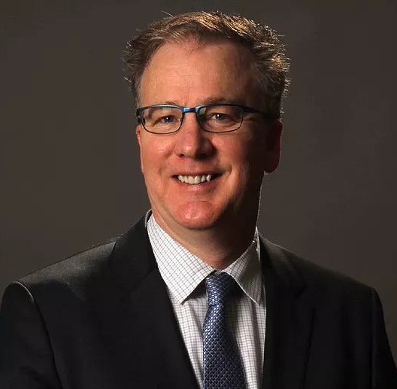 |
|
Joe Miller
Executive Secretary
Global Biodiversity Information Facility (GBIF)
Ph.D. Plant Breeding and Plant Genetics,
University of Wisconsin - Madison
M.S. Plant Breeding and Plant Genetics,
University of Wisconsin - Madison
B.A. History, University of Minnesota - Minneapolis
@AcaciaJoe
https://www.biodiversityintelligence.com/
https://www.biodiversityintelligence.com/cv
Dr. Joe Miller is a systematic botanist who has focused on the phylogenetics of the Australian Acacia. Miller’s interests shifted to data integration and infrastructures which led him to the NSF where he worked on systematic biology funding programs and international collaboration. He is now Executive Secretary of GBIF, Global Biodiversity Information Facility, which coordinates a global network of participating countries and organizations, provides data-holding institutions around the world with common standards and open-source tools that enable them to share information about where and when biodiversity has been recorded.
|
| |
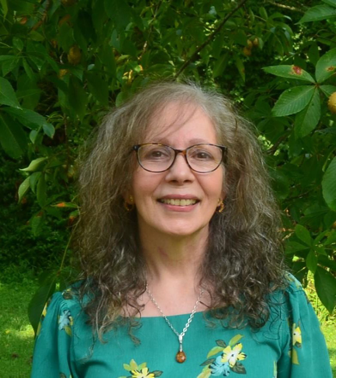 |
|
Vivian Negrón-Ortiz
Botanist
US Fish and Wildlife Service
Ph.D. Botany, Miami University, Ohio
M.S. Biology, University of Puerto Rico, Mayagüez
B.S. Biology, University of Puerto Rico, Mayagüez
https://www.researchgate.net/profile/V-Negron-ortiz/research
https://www.fws.gov/panamacity/plants.html
Dr. Vivian Negron-Ortiz is a botanist with the US Fish and Wildlife Service at the Panama City Field Office in Florida, focusing on protection and preservation of 10 federally listed plant species and their habitats, and several at-risk species. In this position, she conducts surveys and research, and prepares mandate documents under the Endangered Species Act. She coordinates, facilitates, and implements activities pursuant to sections 4, 6, 7, 8, and 10 of the Act.
|
| |
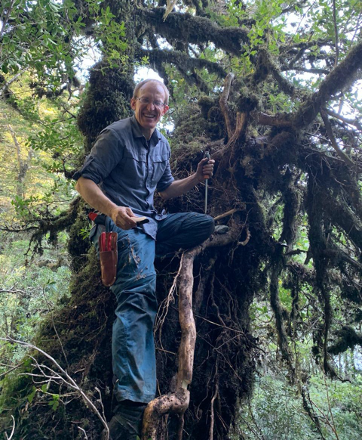 |
|
Mark Olson
Professor and Researcher
National Autonomous University of Mexico
Ph.D. Evolutionary and Population Biology,
Washington University in St Louis
B.A. Botany, University of California, Santa Barbara
www.moringaceae.org
www.explorelifeonearth.org
Dr. Mark Olson is an evolutionary biologist specializing in the evolution of plant morphological diversity, especially in the structure and function of woody stems. He uses an "evo-devo adaptationist" approach that explains organismal form through study of how natural selection interacts with developmental possibility. He also studies the applied properties of the "miracle tree" family Moringaceae.
|
| |
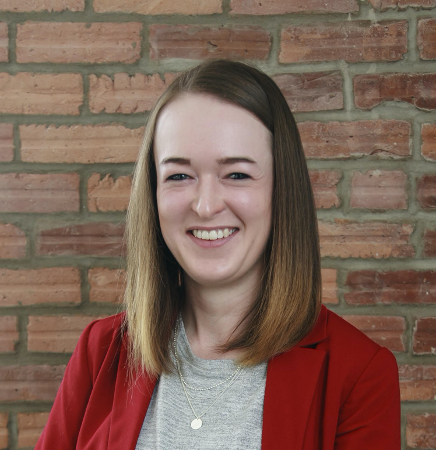 |
|
Jocelyn Pender
Conservation Data Analyst
Agriculture and Agri-Food Canada
M.S. Biology, University of Ottawa
B.S. Environmental Science, University of Ottawa
@JoceOfAllTrades
https://jocelynpender.github.io/
Jocelyn Pender is a Conservation Data Analyst at the Atlantic Canada Conservation Data Centre. Previously, she worked as a Biodiversity Data Manager at Agriculture and Agri-Food Canada and a Business Intelligence Developer at Fullscript in Ottawa, Canada. Her career combines her love of biodiversity and the natural world and her aptitude for data analysis and management.
|
| |
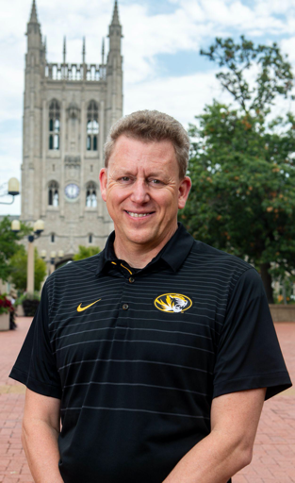 |
|
J. Chris Pires
Curators' Distinguished Professor and Associate Dean
University of Missouri
Ph.D. Botany, University of Wisconsin-Madison
B.A. Biology, University of California, Berkeley
@JChrisPires
https://biology.missouri.edu/people/pires
Dr. J. Chris Pires is a Curators' Distinguished Professor and Associate Dean for Research in the College of Arts and Science at the University of Missouri. His lab focuses broadly on plant evolutionary biology—from phylogenetic studies in plant diversity to genome-wide analyses of gene expression. He is known best for his work on the dogs of the plant world, Brassica oleracea.
|
| |
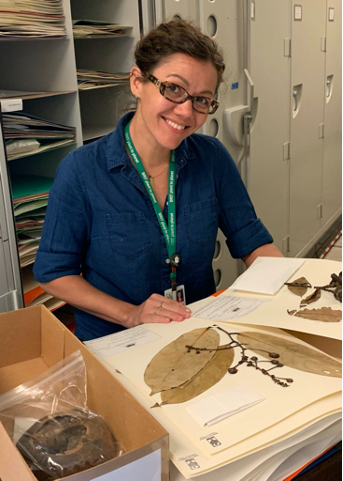 |
|
Tiana Rehman
Herbarium Collections Manager
The Botanic Research Institute of Texas (BRIT)
M.S. Environmental Science, Texas Christian University
B.S. Environmental Science, Southern Methodist University
B.A. Cultural Anthropology, Southern Methodist University
@tfrehman
https://brit.org/about-us/staff/tiana-franklin-rehman/
Tiana Rehman is the Herbarium Collections Manager for the combined herbaria of the Botanical Research Institute of Texas, comprising approximately 1.5 million specimens in the BRIT, SMU, VDB, and NLU collections. As such, she facilitates the care, access, and growth of this scientific botanical resource, as well as managing the herbarium staff and volunteers working in the collections.
|
| |
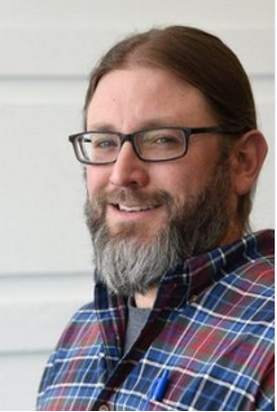 |
|
Brad Ruhfel
Collection Manager and Assistant Research Scientist
University of Michigan
Ph.D. Biology, Harvard University
M.S. Resource Ecology and Management, University of Michigan
B.S. Ecosystem Biology, Eastern Michigan University
@BradRuhfel
https://ruhfellab.weebly.com/
Dr. Ruhfel is a collection manager of vascular plants and assistant research scientist at the University of Michigan Herbarium. His research focuses on plant diversity and explores questions in plant systematics, biogeography, and the flora of the Eastern United States. This research combines fieldwork, herbarium work, and molecular study. Current projects focus on resolving the evolutionary history and biogeography of the river-weed family (Podostemaceae).
|
| |
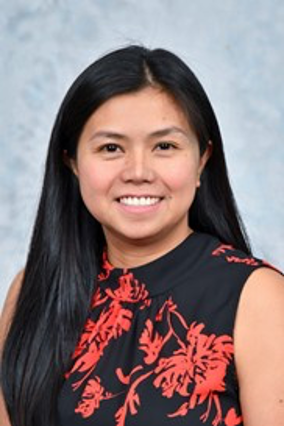 |
|
Vera M. E. Velasco
Senior Research Associate
University of Toronto in Mississauga
Ph.D. Plant Biology, McMaster University
Diploma in Project Management for Research, University of Toronto
B.S. Plant Biology, University of the Philippines
@drveravelasco
@utmgrowthfac
@barangayficars
https://www.utm.utoronto.ca/growth-facilities/vera-me-velasco-phd
https://www.ficars.ca/
Dr. Vera M.E. Velasco is the Senior Research Associate for Growth Facilities Operations at University of Toronto in Mississauga (UTM). Her mandate includes performing cutting edge research independently or in collaboration with faculty and staff who are users of the growth facilities and internationally. She oversees the operations of UTM Growth Facilities and ensures that these facilities are sustainable and at the forefront of science and technology. Vera is also the co-founder of Filipinos in Canada-Academics, Researchers and Scholars which supports Filipino/a/x leadership, advocacies, and professional development in all sectors.
|
|